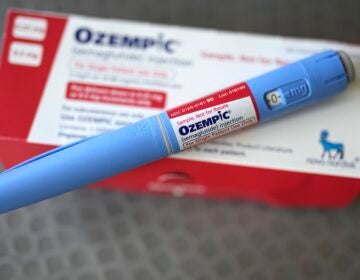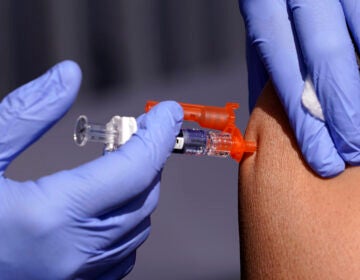Mosquito found at Joint Base tests positive for dangerous disease
Military officials at a New Jersey base say a mosquito found at the installation tested positive for a dangerous disease.

(AP Photo/USDA, File)
Military officials at New Jersey’s Joint Base McGuire-Dix-Lakehurst are advising the public to take precautions after a mosquito found at the installation tested positive for a dangerous disease.
Lab results revealed the presence of Eastern equine encephalitis (EEE), a very rare but serious mosquito-borne disease that can cause inflammation of the brain, according to Joint Base spokeswoman Airman 1st Class Briana Cespedes.
“Only one mosquito was found to be infected with EEE, and transmission to humans is rare, but JB MDL leadership is taking all appropriate actions to mitigate the issue,” Cespedes said.
A Centers for Disease Control and Prevention fact sheet notes that severe cases of EEE begin with the sudden onset of headache, high fever, chills, and vomiting, which can then progress into disorientation, seizures, and coma.
Approximately a third of patients who develop EEE die, and many of those who survive have mild to severe brain damage, according to the CDC.
There have been more than 20 reported cases of EEE in 2019, with Massachusetts and Michigan recording to the most. Other impacted states include Connecticut, New Jersey, North Carolina, and Rhode Island.
The CDC says urges the public to avoid mosquito bites, as there is no vaccine or preventive drugs:
- Use insect repellent containing DEET, picaridin, IR3535 or oil of lemon eucalyptus on exposed skin and/or clothing. The repellent/insecticide permethrin can be used on clothing to protect through several washes. Always follow the directions on the package.
- Wear long sleeves and pants when weather permits.
- Have secure, intact screens on windows and doors to keep mosquitoes out.
- Eliminate mosquito breeding sites by emptying standing water from flower pots, buckets, barrels, and other containers. Drill holes in tire swings so water drains out. Keep children’s wading pools empty and on their sides when they aren’t being used.
WHYY is your source for fact-based, in-depth journalism and information. As a nonprofit organization, we rely on financial support from readers like you. Please give today.




